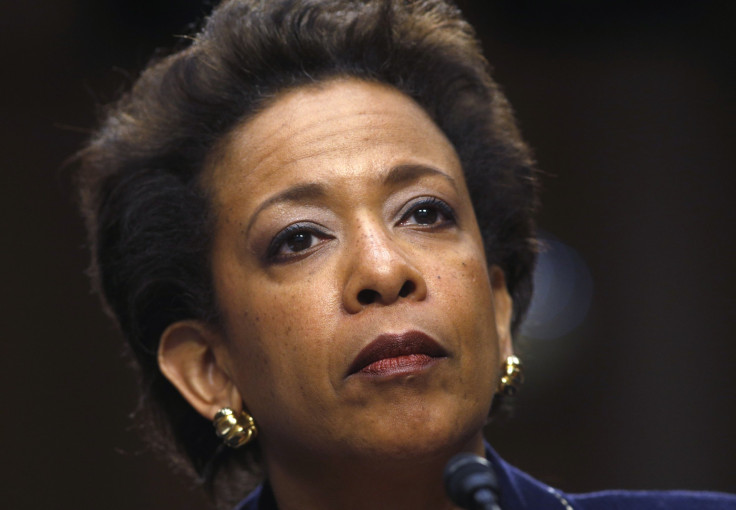Loretta Lynch Attorney General Update: Confirmation Vote Closer With Imminent Senate Trafficking Bill Deal

U.S. senators reached a deal Tuesday that would allow a vote to confirm Loretta Lynch as attorney general to move forward without further delay. A representative for a prominent Senate Republican attributed Lynch's eventual confirmation to a bipartisan deal on a law that helps human trafficking victims. No date for the confirmation vote has yet been announced, however.
Republican and Democratic senators have worked on final language that addresses the parties' dispute over an anti-abortion provision that held up the bill. But early details of the negotiated deal show the abortion restrictions are still a part of the measure.
“I’m thrilled we were finally able to come together to break the impasse over this vital legislation, and I look forward to swift passage in the Senate so we can ensure victims of human trafficking receive the resources they need to restore their lives,” said Sen. John Cornyn, R-Texas, in a statement Tuesday. Cornyn was a key negotiator in the deal.
Republican leaders had refused to bring Lynch up for a vote until the deal was final, drawing searing criticism from Democrats, the civil rights community and African-Americans over the nearly six-month delay. Lynch, currently the top federal prosecutor in Brooklyn, New York, would be the first black female to hold the post of attorney general. Last week, President Barack Obama, who announced that Lynch would replace Eric Holder in November, called the delays on her confirmation "embarrassing."
Negotiations were centering around a funding mechanism for a trafficking victims' fund that would neither relax nor toughen existing bans on federal abortion spending. The so-called Domestic Trafficking Victims’ Fund would receive money collected from criminal offenders and other funding previously appropriated by Congress, according to an aide for Cornyn. The deal on the funding structure would ensure proper resources are available to victims, while long-standing Hyde Amendment restrictions on federal funding of abortion remained in place.
© Copyright IBTimes 2025. All rights reserved.






















